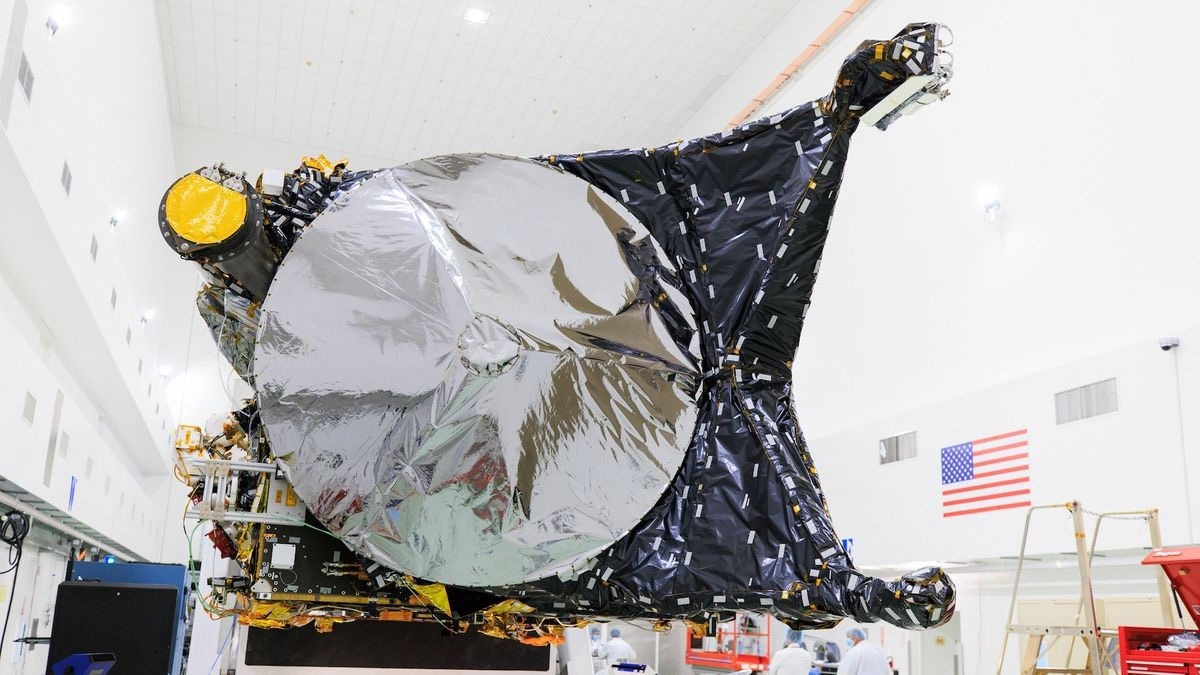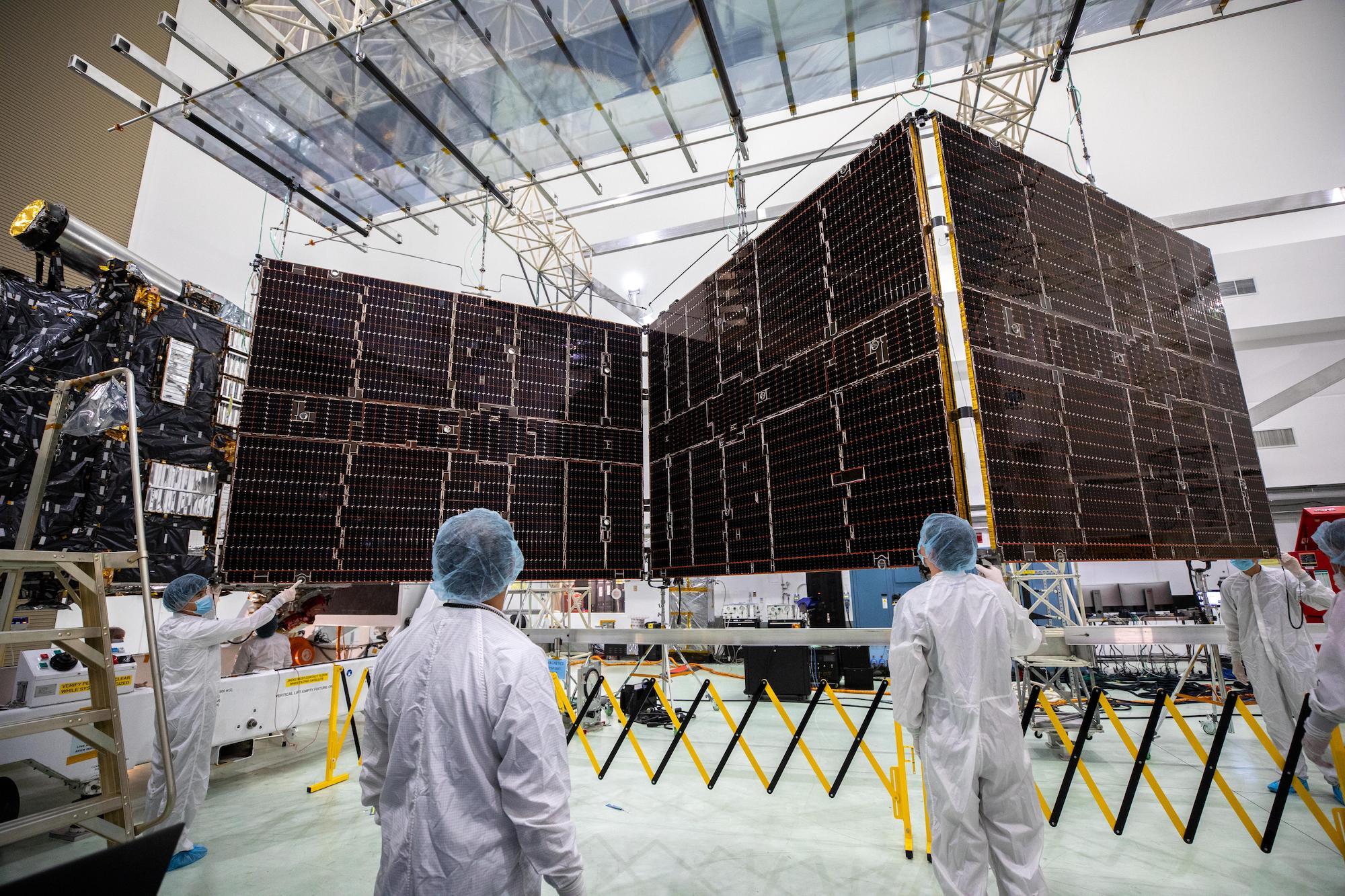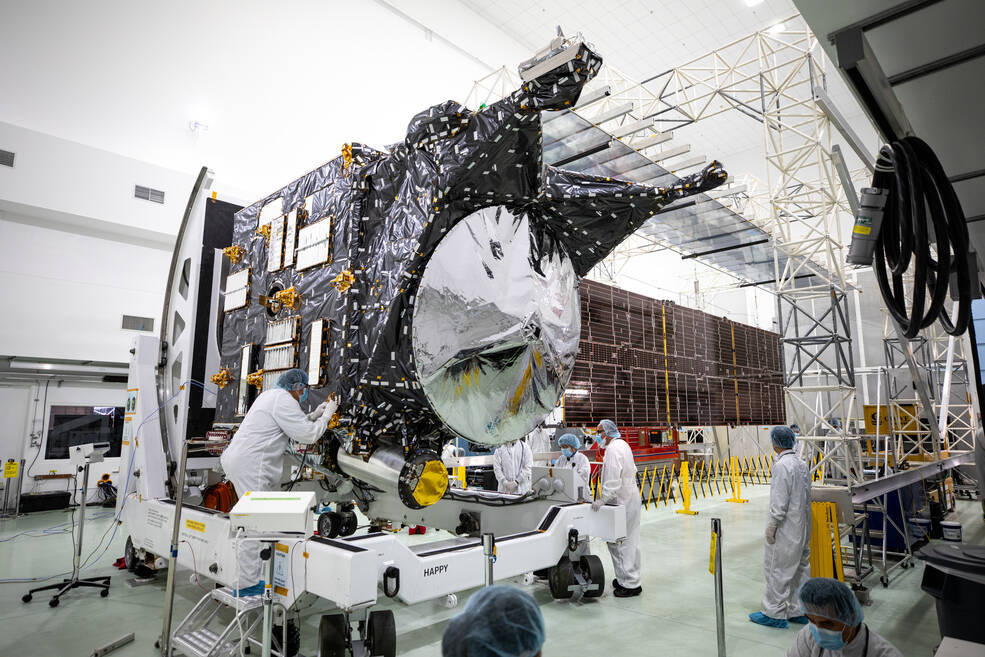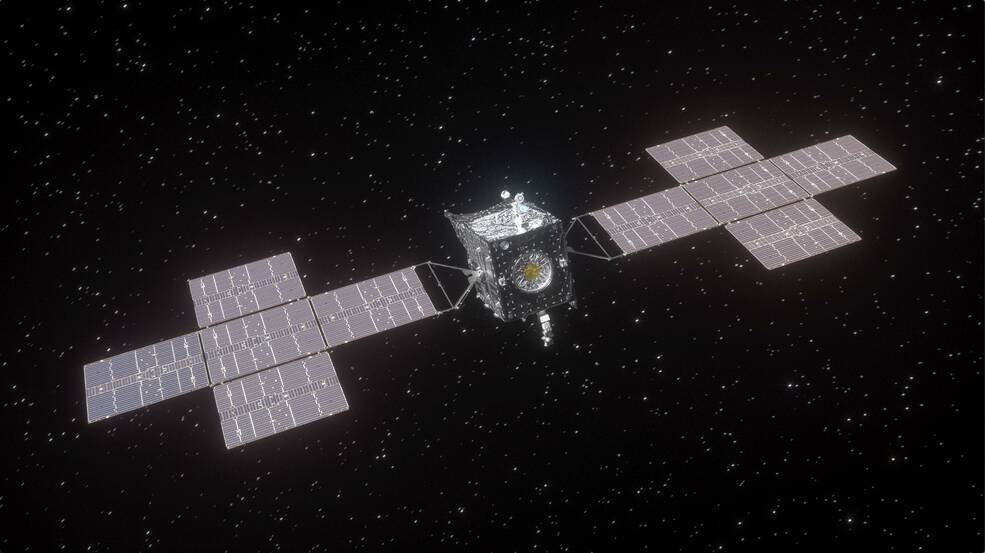29.10.2022
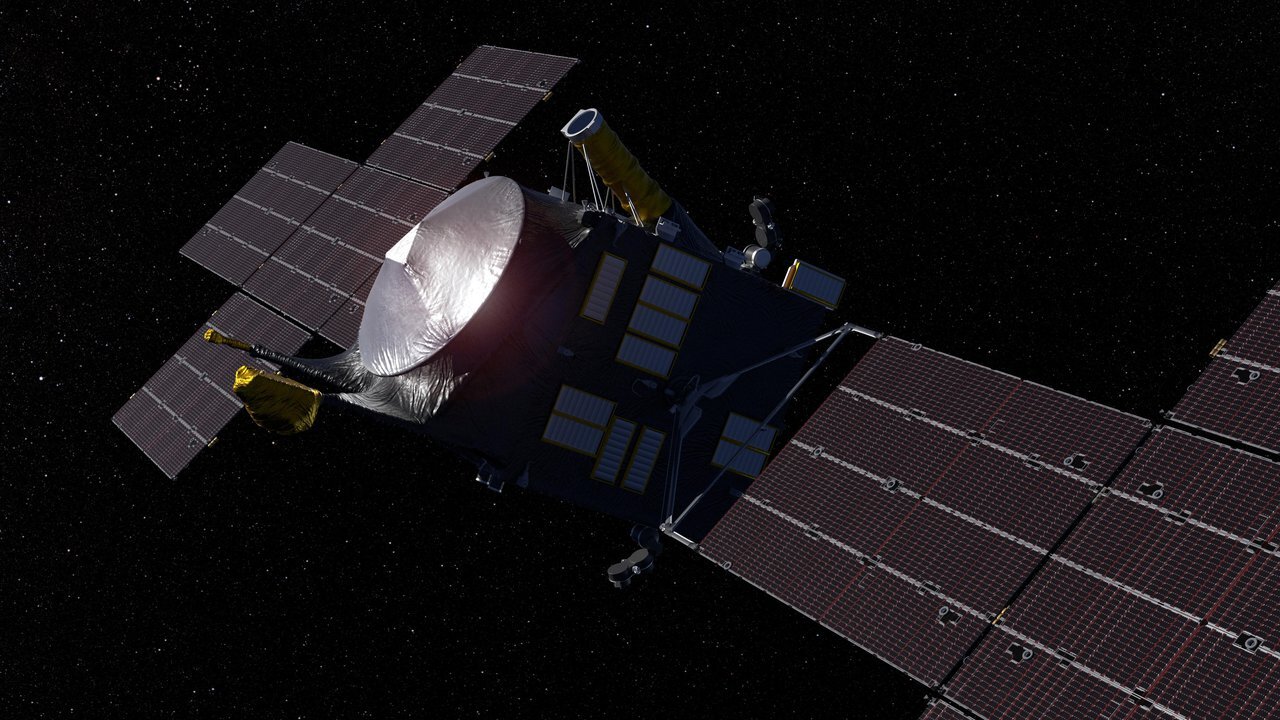
The mission team continues to complete testing of the spacecraft’s flight software in preparation for the 2023 launch date.
NASA announced Friday the agency decided its Psyche mission will go forward, targeting a launch period opening on Oct. 10, 2023.
Earlier this year, Psyche missed its planned 2022 launch period as a result of mission development problems, leading to an internal review of whether the mission would be able to overcome these issues to successfully launch in 2023.
This continuation/termination review was informed by a project-proposed mission replan and a separate independent review, commissioned in June by NASA and the agency’s Jet Propulsion Laboratory in Southern California, that investigated causes for the delay.
“I appreciate the hard work of the independent review board and the JPL-led team toward mission success,” said Thomas Zurbuchen, associate administrator of NASA’s Science Mission Directorate in Washington. “The lessons learned from Psyche will be implemented across our entire mission portfolio. I am excited about the science insights Psyche will provide during its lifetime and its promise to contribute to our understanding of our own planet’s core.”
The independent review board is still finalizing its report, which, along with NASA’s response, will be shared publicly once complete.
The mission team continues to complete testing of the spacecraft’s flight software in preparation for the 2023 launch date. The new flight profile is similar to the one originally planned for August 2022, using a Mars gravity assist in 2026 to send the spacecraft on its way to the asteroid Psyche. With an October 2023 launch date, the Psyche spacecraft will arrive at the asteroid in August 2029.
“I’m extremely proud of the Psyche team,” said JPL Director Laurie Leshin. “During this review, they have demonstrated significant progress already made toward the future launch date. I am confident in the plan moving forward and excited by the unique and important science this mission will return.”
NASA selected Psyche in 2017 to investigate a previously unexplored metal-rich asteroid of the same name. It is part of the agency’s Discovery Program, a line of low-cost, competitive missions led by a single principal investigator.
NASA continues to assess options for its Janus mission exploring twin binary asteroid systems, which was originally scheduled to launch on the same SpaceX Falcon Heavy rocket as Psyche. NASA’s Deep Space Optical Communicationstechnology demonstration, testing high-data-rate laser communications, is integrated into the Psyche spacecraft and will continue as planned on the new launch date.
Arizona State University leads the Psyche mission. JPL, which is managed for NASA by Caltech in Pasadena, California, is responsible for the mission’s overall management, system engineering, integration and test, and mission operations. Maxar Technologies in Palo Alto, California, is providing the high-power solar electric propulsion spacecraft chassis. NASA’s Launch Services Program, based at the agency’s Kennedy Space Center in Florida, is managing the launch. Psyche is part of NASA’s Discovery Program, managed by the agency’s Marshall Space Flight Center in Huntsville, Alabama.
Quelle: NASAAs Psyche Mission Moves Forward, NASA Responds to Independent Review
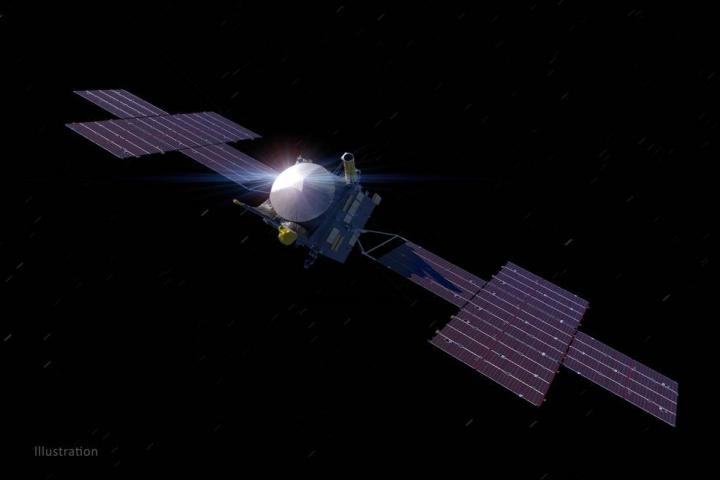
NASA and the agency’s Jet Propulsion Laboratory (JPL) in Southern California, which leads Psyche, shared a response Friday to the results of an independent review board convened to determine why the mission to study a metal-rich asteroid of the same name missed its planned 2022 launch opportunity.
The mission is moving forward as previously announced, and NASA will incorporate recommendations from the board to ensure its success.
The review board – convened at the request of NASA and JPL – found a significant factor in the delay was an imbalance between the workload and the available workforce at JPL. NASA will work closely with JPL management over the coming months to address the challenges raised in the report. The board will meet again in spring 2023 to assess progress.
For the Psyche mission, the board recommended increasing staffing, establishing open communications and an improved reporting system, as well as strengthening the review system to better highlight what issues might affect mission success.
In response, the Psyche project has added appropriately experienced leaders and project staff throughout the project, including filling the project chief engineer and guidance navigation and control cognizant engineer positions. JPL also formed a team to actively manage the staffing shortage across multiple projects including Psyche.
“We welcome this opportunity to hear the independent review board’s findings and have a chance to address the concerns,” said Thomas Zurbuchen, associate administrator of NASA’s Science Mission Directorate in Washington. “It’s our job to notice issues early – this report is essentially a canary in the coal mine – and address them. Information like this helps us for more than just Psyche, but also for upcoming key missions such as Europa Clipper and Mars Sample Return.”
The independent review board also looked at JPL as a whole. The report made recommendations to address what it called inadequate flight project staffing – in both number of personnel and experience – as well as erosion of line organization technical acumen, and the post-pandemic work environment.
In response, changes to JPL’s organizational reporting structure and reviews are in work, which along with other actions, are designed to increase institutional insight and oversight of missions including Psyche. JPL also is instituting new internal staffing approaches and working with industrial partners to support staffing needs and to redouble efforts to strengthen experienced leadership at all levels.
“I appreciate the thoughtful work of the Psyche independent review board,” said Laurie Leshin, JPL director. “The board members worked diligently over the past several months to help JPL uncover and understand issues related to the delay of the Psyche launch. Their insights are helping JPL and NASA take the steps necessary to ensure success on Psyche and future missions.”
To support JPL’s staffing needs, NASA anticipates delaying the launch of the Venus Emissivity, Radio Science, InSAR, Topography, and Spectroscopy (VERITAS) mission for at least three years. This choice would allow experienced staff at JPL to complete development of strategic flagship missions further along in their development. A delay of VERITAS, a mission in early formulation, would also free up additional resources to enable the continuation of Psyche and positively affect other planetary funding needs.
VERITAS is a JPL-led mission designed to search for water and volcanic activity on Venus. It was selected in 2021 as one of two Venus proposals for the agency’s Discovery Program, a line of low-cost, competitive missions led by a single principal investigator. The mission, with planned contributions from the Italian Space Agency, German Aerospace Center, and French Space Agency, was originally expected to launch in December 2027. The mission is now scheduled to launch no earlier than 2031.
For a VERITAS delay, JPL will stand down their management and engineering teams for the mission and release the staff to other projects, while funding will be continued for science team support.
Quelle: NASA
----
Update: 27.01.2023
.
NASA’s Psyche Mission Continues Preparation for Launch in 2023
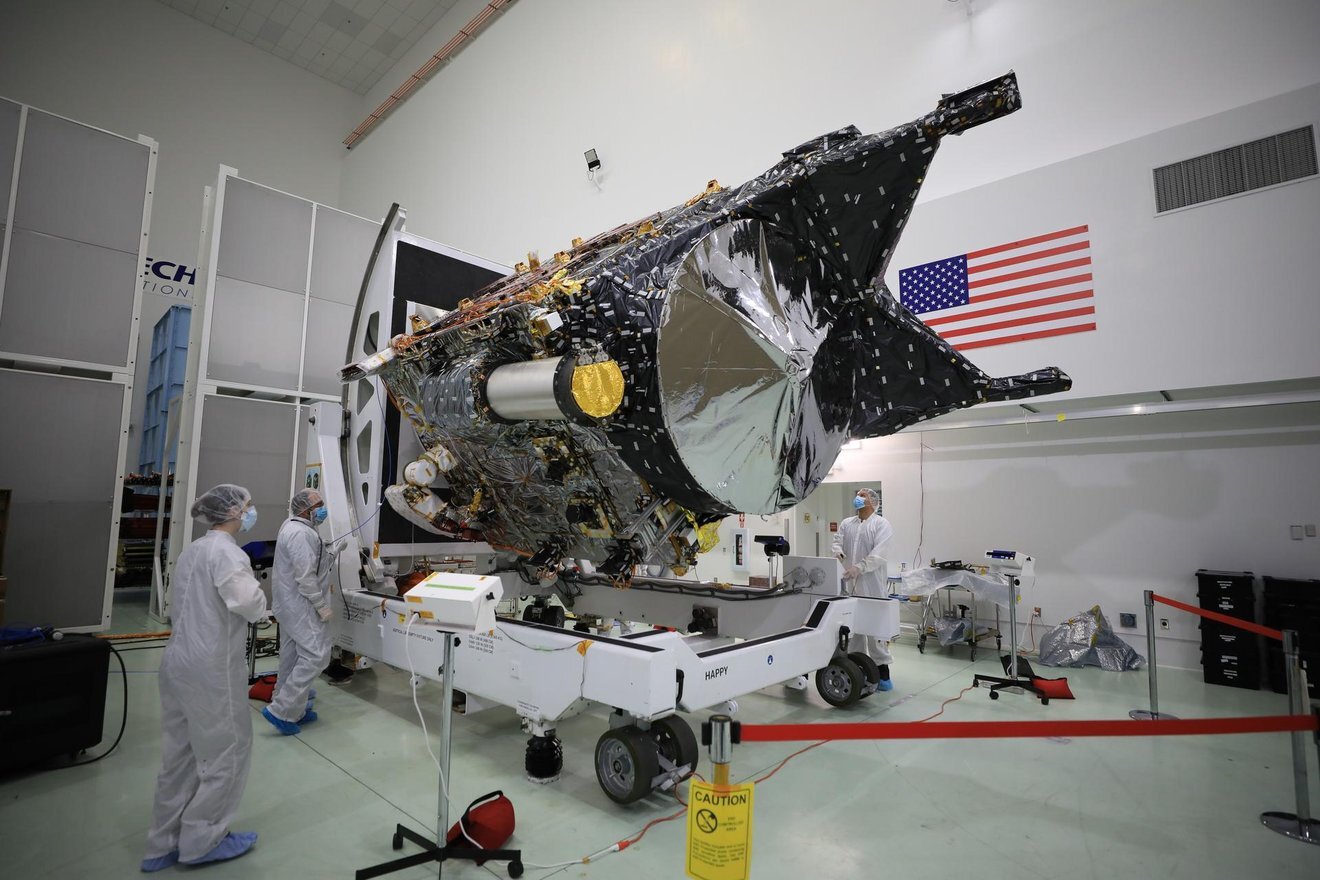
A team prepares NASA’s Psyche spacecraft for launch inside the Astrotech Space Operations Facility near the agency’s Kennedy Space Center in Florida on Dec. 8, 2022. Psyche will launch atop a SpaceX Falcon Heavy rocket from Launch Complex 39A at Kennedy.
Credit: NASA/Ben Smegelsky
After a one-year delay to complete critical testing, the Psyche project is targeting an October 2023 launch.
NASA’s Psyche spacecraft is shown in a clean room on Dec. 8, 2022, at Astrotech Space Operations Facility near the agency’s Kennedy Space Center in Florida. The spacecraft was powered on and connected to ground support equipment, enabling engineers and technicians to prepare it for launch in 2023. Teams working at Astrotech and at NASA’s Jet Propulsion Laboratory in Southern California continue to communicate with the spacecraft and monitor the health of its systems.
After a one-year delay to complete critical testing, the Psyche project is targeting an October 2023 launch on a SpaceX Falcon Heavy rocket. NASA’s Deep Space Optical Communications (DSOC) technology demonstration, testing high-data-rate laser communications, is integrated into the Psyche spacecraft. The silver-colored cylinder shown in the photo is the sunshade for DSOC, and the gold blanketing is the aperture cover for the DSOC payload.
The spacecraft’s target is a unique, metal-rich asteroid also named Psyche, which lies in the main asteroid belt between Mars and Jupiter. The asteroid may be the partial core of a planetesimal, a building block of rocky planets in our solar system. Researchers will study Psyche using a suite of instruments including multispectral cameras, Gamma Ray and neutron spectrometers (GRNS) and magnetometers. The GRNS and magnetometer sensors are visible in the photo as the tips of the two black protrusions at the far end of the spacecraft. Also visible here is the high-gain antenna, which will enable the spacecraft to communicate with Earth.
More About the Mission
The Psyche mission is led by Arizona State University. JPL, which is managed for NASA by Caltech in Pasadena, California, is responsible for the mission’s overall management, system engineering, integration and test, and mission operations. Maxar Technologies in Palo Alto, California, is providing the high-power solar electric propulsion spacecraft chassis. DSOC is managed by JPL for the Technology Demonstration Missions program within NASA’s Space Technology Mission Directorate and the Space Communications and Navigation (SCaN) program within the agency’s Space Operations Mission Directorate. NASA’s Launch Services Program, based at the Kennedy Space Center, is managing the launch service. Psyche is part of NASA’s Discovery Program, managed by the agency’s Marshall Space Flight Center in Huntsville, Alabama.
Quelle: NASA
----
Update: 4.04.2023
.
Psyche updated plan puts mission on track for October launch
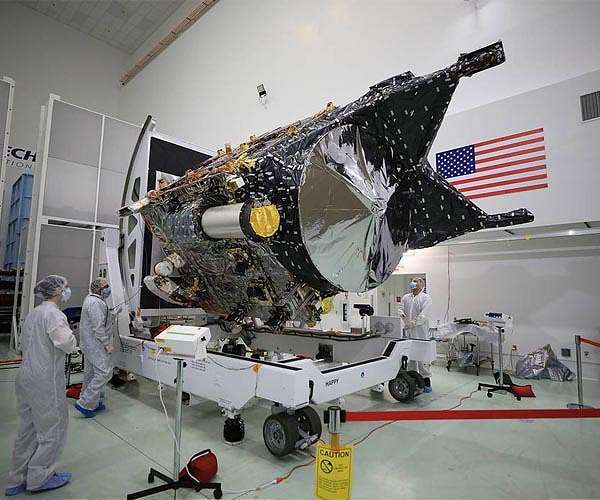
NASA's Psyche mission, which will explore a metal-rich asteroid of the same name, is on track to launch in October 2023 after a one-year delay to complete critical testing. The launch period will open Oct. 5 and close Oct. 25. The asteroid, which lies in the outer portion of the main asteroid belt between Mars and Jupiter, may be the remains of a core of a planetesimal, a building block of a rocky planet.
Due to the new launch date, Psyche has a new mission plan, which includes a flyby of Mars for a gravity assist and arrival at the asteroid in August 2029. The mission then will enter its 26-month science phase, collecting observations and data as the spacecraft orbits the asteroid at different altitudes.
The redesigned flight plan gives the mission more flexibility in how the spacecraft uses its electric propulsion thrusters to reach the asteroid, move between orbits, and remain in orbit.
Unlike many other bodies in our solar system, the asteroid Psyche rotates on its side. Mission planners needed to take this unusual rotation into account as they mapped out the spacecraft's observation orbits around the asteroid. Another challenge is that the spacecraft will reach Psyche at a different point in the asteroid's orbit around the Sun than it would have in the previous mission plan.
In the original plan, the spacecraft was to sequentially orbit the asteroid at four different altitudes, starting at the highest altitude (referred to as Orbit A) and working its way down to the lowest (Orbit D). In the new mission plan, Psyche will initially enter Orbit A, then descend to Orbit B1, then Orbit D, back out to Orbit C, and finally it will move out to Orbit B2 (the second portion of Orbit B).
This new orbital design ensures that imagers on the spacecraft will have the lighting they need during Orbits B1 and B2. The other orbits are designed to best enable the observations needed by Psyche's Gamma Ray Neutron Spectrometer, magnetometer, and telecommunications system, which is used for the gravity science experiment.
Engineers and technicians now are completing the final verification and validation of the system-level elements of the fully integrated spacecraft. During this time, tests are performed on the spacecraft as well as in the mission's three system test beds.
Later this spring, engineers will run a series of "day in the life" tests, when they use test beds to operate Psyche for five to seven days at a time with the same commands that they will use when it is in flight. They will run scenarios in which operations go as planned as well as when operations meet challenges.
The spacecraft is currently in a clean room at Astrotech Space Operations Facility near NASA's Kennedy Space Center in Florida. In June, the mission begins its final assembly, test, and launch operations, and engineers and technicians from NASA's Jet Propulsion Laboratory in Southern California will return to Astrotech and work there until launch. Assembly of the spacecraft is complete except for the installation of the solar arrays and the imagers, which may be reinstalled before June.
A final suite of tests will be run on the spacecraft, after which it will be fueled and then mated to the launch vehicle just prior to launch. Psyche will launch on a SpaceX Falcon Heavy rocket from Kennedy's Launch Complex 39A. NASA's Deep Space Optical Communications technology demonstration, intended to test high-data-rate laser communications, remains integrated into the spacecraft.
Quelle: SD
----
Update: 8.05.2023
.
What happened with Psyche?
A first-hand account from JPL Director Laurie Leshin
In 2022, a mission being led by NASA’s Jet Propulsion Laboratory (JPL) missed its launch date. Psyche, a mission to an asteroid of the same name, was delayed by a year and ran over budget, causing a ripple effect of delays and budget woes for other JPL-led missions, notably the VERITAS mission to Venus which was delayed indefinitely. According to an independent review panel, workforce and management problems at JPL were at the root of Psyche’s missed launch date.
Dr. Laurie Leshin took over as JPL director shortly after these problems were discovered. On Jan. 6, 2023, she joined an episode of Planetary Radio: Space Policy Edition to talk with The Planetary Society’s chief of space policy, Casey Dreier, about what happened with Psyche, what exactly the problems were — ranging from the effects of the COVID-19 pandemic to outdated human resources policies and competition from private space companies — and what JPL is doing to make sure it can hire, retain, and effectively use the best minds in the space industry.
The original transcript has been condensed and edited for clarity.
Casey Dreier: Dr. Leshin, thank you for joining me today on Space Policy Edition.
Laurie Leshin: It's great to be with you, Casey.
Casey Dreier: Great having you back. I’d like to dive right into the big topics on this episode: the Psyche Independent Review Board, the mission to the metallic asteroid that was delayed this year, and the larger management challenges facing the Jet Propulsion Laboratory. First, I want to make it clear that you came in just as this was happening.
Laurie Leshin: Yes, three weeks after I got here I figured out we weren't going to make the launch.
Casey Dreier: The Independent Review Board’s (IRB’s) report about what happened with Psyche included issues with workforce. Is there a workforce problem not just at JPL but in aerospace in general?
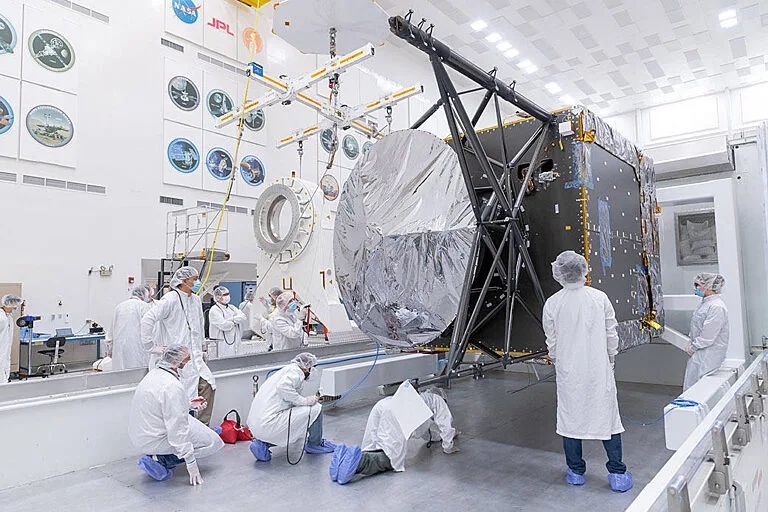
PSYCHE AT JPL Engineers and technicians at the Jet Propulsion Laboratory working on the Psyche spacecraft.Image: NASA/JPL-Caltech
Laurie Leshin: Yes. Every single org we have talked to since the Psyche Independent Review Report came out has said that looking at the slides they could scratch out “JPL” and put “X aerospace company,” or “X NASA center.”
This manifested in such a way that it's making visible to everyone the challenges that we're facing across the aerospace sector. There’s fantastic growth of the commercial space sector, the founding of the Space Force and growth in military and intelligence community space work, growth in civilian space work, growth in international space work. There's no doubt that there's a huge amount of opportunity out there. And this means that employees in the aerospace sector can be really picky and really think about where they want to go and what they want to do. Frankly, I think that's going to make us all better. It's going to make us need to be better employers. It's going to make us need to have a better employee value proposition.
Casey Dreier: I actually wanted to touch on that very issue. That was one of the key items called out in the report was retention and successful hiring of talented and promising individuals. This strikes me as something of an irony, that for so long NASA has been trying to build a commercial space sector and to make it more vigorous and expansive, but it seems now that there may be some hemorrhaging of talent; the people that NASA paid to train, invested in, and depends on are now being lured into the private sector. It's not necessarily a bad thing, but it certainly changes the game for you, I imagine.
Laurie Leshin: It does change the game, but in the best possible way. Look, the last time I was at NASA in the 2010-2011 timeframe was when we were starting to really work to support the commercial space sector's emergence, and guess what? We were wildly successful. So now there's not only government money in that, but a ton of private money. It means that there are really interesting emerging places to work for people with backgrounds in aerospace. This is, I think, the best possible problem to have.
Frankly, it's not a bad thing if more people in our business get more different experiences, that there isn’t only one or two places to work. We've got to work on making sure this is a great place to work, that we've got exciting and challenging and inspiring missions for folks at JPL to work on. That way when someone leaves for a few years, maybe they'll come back with a different set of experiences that can help us be better.
Casey Dreier: What do you think JPL's argument is? Why come to work for JPL? How do you pitch yourself as a great place to come and work, or what are you doing to change?
Laurie Leshin: So this is about our mission and our missions. We are fundamentally a research and development organization that's working to answer the most profound scientific questions that you can ask. Things like, "Are we alone in the universe?" Things like, "How are we going to adapt to and prevent more climate change?" These are really challenging things and we do it at JPL with a specific approach that says, "We don't want to build the tenth something or even the fifth something. We want to build the first of a kind. We want to build something that's one of a kind. We want to build something that really drives the frontiers of capabilities for robotic missions," and that is really inspiring to a lot of folks. We want to fly helicopters on Mars. We want to do that thing that no one's ever done before. For a lot of folks, that's going to be really exciting, and we want to do it in a way that frankly, offers people some flexibility, that really respects families, that embraces everyone as who they are. We want to do it with an environment that is truly diverse and inclusive and we're working on that to make it better. We clearly have great things to work on and we're working every single day to continue to make this a great place to work.
Casey Dreier: Are there things you can talk about already in terms of what's changed in terms of how you're approaching workforce after this, and just in general from what you are bringing to the role?
Laurie Leshin: Well, we've been focused in a few areas. One thing that we announced very recently is, believe it or not, we did not have paid parental leave at JPL. We've just announced eight weeks of paid parental leave for both parents, and this for after birth, after adoption, or after a new foster child comes into the home. This is basic stuff and I was really pleased that we were able to work with our colleagues at Caltech to get that done. It's amazing how much of a difference things like that really make to folks, so I'm glad we were able to do that. We're also getting ready to roll out our diversity, equity, inclusion, and accessibility strategy and it's a very JPL kind of strategy because it's really focused on trying to invent the science of all this, to really do experiments so that we can measure how well they work.
Casey Dreier: Well, it strikes me, again, how things that are at first a crisis can actually be this tipping point into action. But at the same time, what has Psyche revealed for JPL management? Because one critique was that there wasn't enough penetration into the project, that problems didn't get reported up. How are you using this information to improve management for other missions? Mars Sample Return, for example, is spending more per year than NASA's entire Heliophysics Division right now. So a delay there because of management issues could be catastrophic to some degree. How has what you’ve learned from Psyche been informing these other areas that are even larger and more complex?
Laurie Leshin: We're working our way through what we heard from the IRB, and we've got a response team that's being led by one of our most senior leaders. They're turning these things around and looking at them from all angles and thinking about how to address them. The Psyche team has already addressed everything in the report. They were doing it in real time and that's one reason why the mission got continued and will launch next October.
One of the big challenges that we’ve addressed is remote work. There was literally no other mission whose development happened during the pandemic as much as Psyche’s did. The mission was confirmed six months before the pandemic started.
So that was a huge challenge for a team, especially a distributed team who was flying around a lot to be together. Even those who were in the same city, they couldn't all be in the same place. It's quite clear that the way that we had implemented Return to Lab at JPL, which happened in early May 2022 right before I started, actually was okay. But it was like doing remote and hybrid work in the worst possible way because people would come to the lab and then would sit on WebEx all day because their teammates weren't here.
Building something that's one of a kind and first of its kind with large teams diverse in terms of background and expertise is really tough to do when you're not together pretty much at all. The work we do is most effectively done in the lab — not every day, not every task, but there has to be more of that togetherness.
So we went through and tried to simplify it and make it more consistent. We said to the projects, "We think you should be setting out certain days of the week that people are here." We gave people time for this adjustment because I'm not going all Elon here, "Everybody get in here by Monday." We're not doing that. People need time to get their lives together, but we’ve got to get not just the work done but the job done. We need the teams together more to really do that.
We also do have some people on our team who live elsewhere and work fully remotely. Some teams and some jobs lend themselves to that. But we still need to get the full team together at least quarterly to make sure that people are getting the facetime they need, and to make sure that young people are really building those relationships with more senior mentors.
Casey Dreier: Is it fair to characterize Psyche as an unintended experiment of building a spacecraft in a hybrid remote working environment?
Laurie Leshin: Yes. Let's never do that again.
Casey Dreier: It's actually amazing how close it came to launching, all things considered.
Laurie Leshin: Well, I actually think that's right, Casey. Look, it's not great that we shipped a spacecraft to Cape Canaveral and then later decided it wasn't ready for launch. I get why that's not great, but the truth is that they overcame almost every obstacle against incredible odds. I think we should be honestly celebrating this team for not launching when they shouldn't have. They raised their hand and said, "We're not ready and we shouldn't do this. It's too big a risk," and it's really hard to do that.
The other thing I was really impressed with the IRB for is that it identified the importance of what they called the ‘informal safety net.’ This is the fact that when you're doing things that are incredibly hard, stuff always happens. Every single day in this lab, people are walking down the hall to their neighbors saying, "I can't figure this thing out," or, "Something doesn't feel right here. What are your thoughts about this?" Or doing it in the cafeteria at the coffee cart. The senior people who know everything lend their expertise informally across every project at this lab and that was obliterated in COVID. We all know that we missed those hallway conversations. What we didn't realize is how essential they are to being able to launch a spacecraft on time. So that, again, really suggests that more time together in the lab — it doesn't have to be every person every day — but more time together is really essential.
Casey Dreier: Does it help that other tech companies are also reaching the same conclusion? It seems like a lot of companies are really pushing people to come back.
Laurie Leshin: Yeah. Lots are, including the Googles and the Apples, actually. We're hearing they're going back to three days a week and many in the aerospace business are doing the same. When you're trying to do hard stuff, none of us can do it alone. We've got to do it together.
Casey Dreier: One of the questions I have, particularly in relation to Psyche, is, how do you know what is real or systemic in terms of the problems you're trying to deal with? How much of it was just this bizarre, hopefully once-in-our-lifetimes consequence of a global respiratory virus that's swept through the world in three years? How do you try to choose? Because I could see overreacting potentially, assuming something is systemic where it's really just a bizarre reaction or consequence of COVID?
Laurie Leshin: So you're asking the $64 million question. This is exactly the conversations we're having internally all the time right now. The truth is that the management within the project didn't realize what was happening, so there's no way that at the director level they would've realized it. So the worry is we're going to put in a whole bunch more bureaucracy to deal with management oversight, when in fact, what we need to do is figure out, "How do we just make sure that the people who are on the front lines with the issues are raising them up appropriately internally?"
Yes, I already am doing more in terms of interacting with the projects, just having heard the initial feedback from the IRB. But we've got to really get to the root of the challenge and figure out how much of it is COVID related. We're trying to make that balance and not overcorrect, but I think for that reason, it's not going to be a one-off set of responses. We're going to try some things. I'm a big believer in testing as you go and learning along the way and adjusting, not waiting until you have the perfect answer, but actually implementing some things and then assessing how we're doing and keeping the questions going. I think that's going to be really essential here.
Casey Dreier: What would you characterize as the most important near-term or immediate challenge that JPL is facing?
Laurie Leshin: For us, we really do need to keep focused on the work ahead of us. The next year, year-and-a-half of work, we're going to be very busy and we need to stay focused on making sure that work is done and done well, not taking our eye off the ball. So it's fairly tactical I would say. I think if we do well in the near term, the long term will take care of itself. Not that you don’t have to pay attention to the long term. Of course, we pay attention to it.
Casey Dreier: Is it fair to say that the most important general long-term policy that benefits not just JPL, but workforce issues with all of NASA is having a clear, inspiring mission that's boundary pushing at the core?
Laurie Leshin: It is. If the rule for a new mission is, "No new technology, don't do anything new," I worry that in the long term that sets us up to drive away our most capable folks. They will go somewhere else and find it in the private sector if they can't find it through NASA funding. So we work very hard to invest in new technology.
Mars Helicopter is a great example. Mars Pathfinder, too. We would not have Spirit, Opportunity, Curiosity, or Perseverance if it weren’t for that cute little rover that started as a tech demo. That is what we do best at JPL; we think of those slightly crazy things and we figure out how to try them and then it ends up driving the whole program. So if there's one thing I could wish for in the future, it's that we would be able to continue to do that, to continue to drive those frontiers. That's how you attract a great workforce and that's how you build a great place to work.
Casey Dreier: There's an interesting tension there that in order to have total cost assurance that you'll never have something like another Psyche or another cost overrun you want predictability, familiarity, all of the things that were just the opposite of inspiring. So in a sense, you have to lean into the risk in a smart way in order to really provide what you're talking about. That's what brings out the best in the workforce. I think that's an important thing for policymakers to remember or to really embrace, that if you want the government-funded stuff to stay at the forefront of this, failure's going to have to be by definition part of this.
Laurie Leshin: Failure, and not having exact cost predictability at the very beginning of a new project. We're in this place right now with Mars Sample Return. Again, it's the most complex planetary mission ever attempted, and we really want to do it well. We want to make sure we've thought it through. So we're working on those things right now. We're pushing really hard to have the team try and do that in a cost-constrained way. It's a huge challenge, but a really exciting one, actually. I couldn't ask for a better challenge.
Quelle: The Planetary Society
----
Update: 2.06.2023
.
NASA to Discuss Conclusions of Psyche Mission Independent Review Board
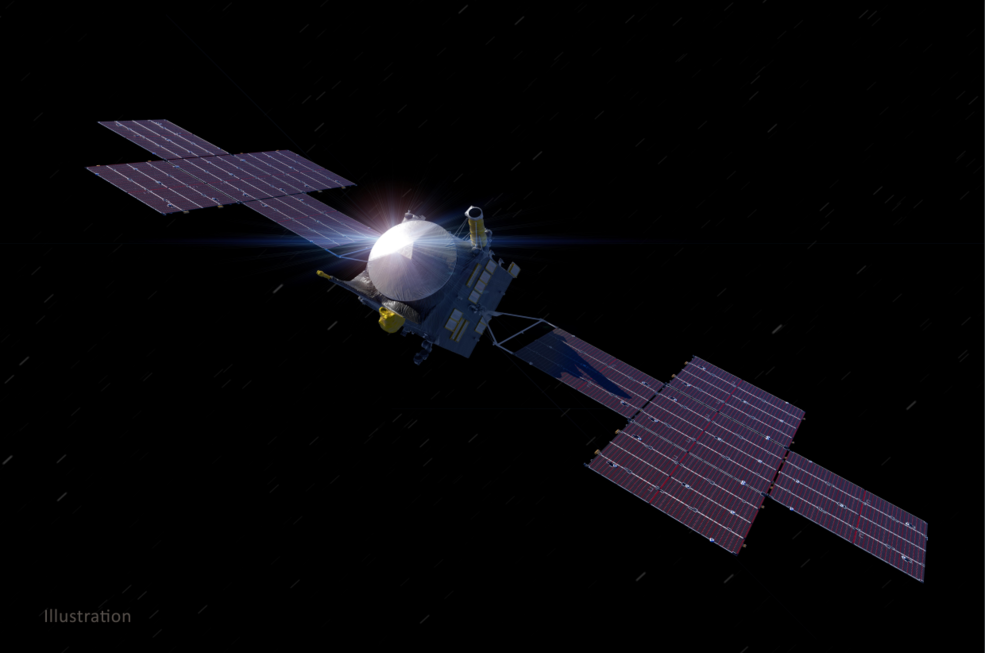
NASA will host a media teleconference at 4 p.m. EDT on Monday, June 5, to discuss the follow-up report by the Psyche mission independent review board. The new assessment reviews corrective actions taken following the November 2022 report.
Audio of the media call will stream live at:
Convened in July 2022 by NASA and the agency’s Jet Propulsion Laboratory (JPL) in Southern California, the board examined factors contributing to the Psyche mission’s request to delay its August 2022 launch. The mission’s new launch period opens Oct. 5, 2023. The spacecraft will investigate a metal-rich asteroid of the same name that may be the partial core of a planetesimal, a building block of rocky planets in our solar system.
Briefing participants include:
- Nicola Fox, associate administrator for Science Mission Directorate, NASA Headquarters, Washington
- Lori Glaze, division director for Planetary Sciences, NASA Headquarters
- Laurie Leshin, director, Jet Propulsion Laboratory in Southern California
- Thomas Young, chair, independent review board
Media interested in participating in the call should send their full name, media affiliation, email address, and phone number to Erin Morton no later than two hours before the start of the call at: erin.morton@nasa.gov. A copy of NASA’s media accreditation policy is available online.
Quelle: NASA
----
Update: 10.07.2023
.
Prelaunch Processing for Psyche
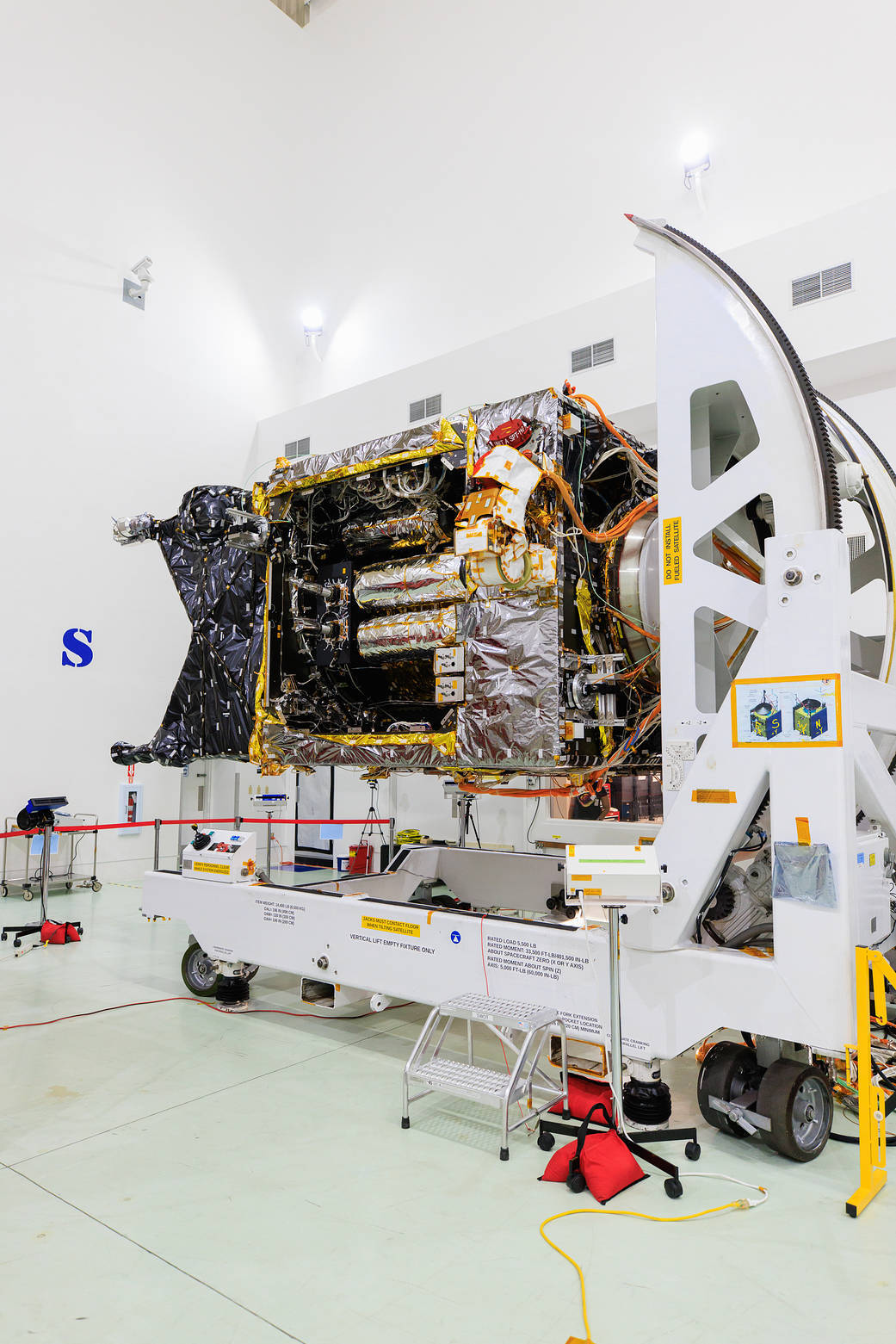
NASA's Psyche spacecraft is nearly complete as it rests in a clean room on June 26, 2023, at Astrotech Space Operations Facility near the agency’s Kennedy Space Center in Florida. Engineers and technicians have begun final assembly, test, and launch operations on Psyche, with assembly of the spacecraft all but complete except for the installation of the solar arrays and the imagers. Psyche is targeted to launch in October 2023.
Image Credit: NASA/Frank Michaux
Quelle: NASA
----
Update: 4.08.2023
.

